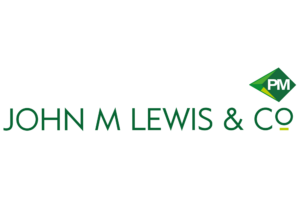At John M Lewis & Co, we understand that lease extensions are more than just legal transactions; they’re vital decisions that impact homeowners and property investors. As a dedicated law firm based in Derby, UK, we are here to guide you through the complexities of extending leasehold agreements, ensuring you have the knowledge and confidence to make informed choices for your property.
Decoding Leasehold: A Unique Form of Ownership
In the United Kingdom, leasehold ownership is particularly common for flats and apartments, although some houses can also be held on a leasehold basis. Under this arrangement, homeowners, known as leaseholders, possess the right to occupy and use the property for a predetermined term specified in the lease agreement. However, it’s important to note that the actual ownership of the land and building remains with the freeholder or landlord.

Leasehold terms can vary, often spanning 99, 125, 250, or 999 years. As the lease term decreases, it can affect the property’s value. This is why leaseholders must take proactive steps to manage their leasehold tenure. One effective option available to leaseholders is to consider a lease extension, which can add years to the existing lease. This not only provides greater security but can also enhance the overall value of the property.
It’s worth highlighting that while leasehold properties come with certain obligations and responsibilities, such as ground rent and service charges payable to the landlord, extending the lease can offer numerous advantages.
The Value of Extending Leasehold
The decision to extend your leasehold is significant and can have long-term implications. If a lease term is not extended and it runs out, the property automatically reverts back to the freeholder, leading to potential loss and complications. Typically, leaseholders opt to extend their lease before it drops below the 80-year mark for several reasons.
Firstly, this is the preferred option for most lenders as it ensures the property retains its value and marketability. Secondly, when the lease term falls below 80 years, the concept of ‘marriage value’ comes into play. Marriage value represents the increase in the total property value following a lease extension, taking into account the market value of the longer lease. The Leasehold Reform Act stipulates that if the original lease still has 80 years or more to run, the ‘Marriage Value’ is automatically considered zero. This means that no element of Marriage Value is factored into the premium due to the landlord, making the lease extension more cost-effective.
Navigating the Extension Process
Extending your leasehold can be a smooth and cost-effective process. The first step is to approach your landlord and discuss a voluntary lease extension, which benefits both parties by reducing costs and expediting the process. Negotiations can help secure the most favourable terms, ensuring that you get the longest lease at the most affordable price, while minimising ground rent.
If your landlord is unwilling to agree to a voluntary lease extension, you may still have options. You might qualify for a Statutory Lease Extension under The Leasehold Reform, Housing and Urban Development Act 1993. Basic criteria for qualifying tenants include having an original lease for more than 21 years and owning the property for at least two years. It’s important to note that there are some exemptions, such as shared ownership properties that have not been stair cased to 100%.
A statutory Lease Extension, governed by the Act, grants a term of 90 years with a peppercorn rent from a specified start date. These extensions are generally on the same terms as the existing lease or with modifications as allowed by the Act.
The Act outlines a strict timetable that must be followed, and the landlord may request a deposit and payment of their legal fees at the start of the process. Issuing a Section 42 Notice on the landlord initiates the process, but it’s crucial to serve it on the correct landlord to avoid invalidating your right to the lease extension.
Seek Expert Guidance
Extending your leasehold is a decision that demands careful consideration and expert guidance. Whether you’re a leaseholder nearing the end of your lease or a potential buyer exploring leasehold properties, seeking advice from a qualified conveyancing firm like John M Lewis & Co is invaluable. Our experienced team is here to provide the knowledge and support you need to make informed decisions, ensuring the protection and growth of your property investment for the long term. Trust John M Lewis & Co to be your legal partner in navigating the world of leasehold extensions.




